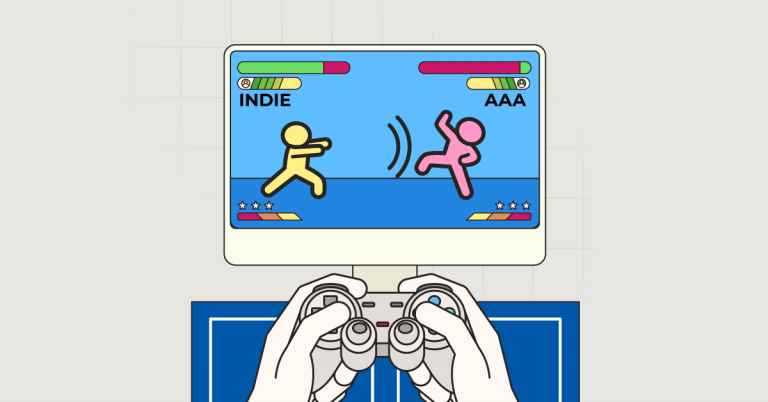When An Indie Outclassed The Industry: Clair Obscur: Expedition 33’s Golden Joystick Sweep

Table of Contents
There’s something wonderfully ironic about awards season when the supposed Game of the Year (GOTY) isn’t some mega-budget behemoth built by a workforce the size of Vatican City, but a brooding French indie where every character looks like they’ve strutted straight out of The Devil Wears Prada and into a nightmare.
As many forecasted, Clair Obscur: Expedition 33 came home with a trophy at the Golden Joystick Awards, but what was surprising—not just to me, but to many—was just how many it won!
- Ultimate Game of the Year
- Best Storytelling
- Best Visual Design
- Best Soundtrack
- Best Supporting Performer (Ben Starr)
- Best Lead Performer (Jennifer English)
Clair Obscur didn’t merely win Ultimate Game of the Year—it sashayed onto the stage, hair artfully windswept, and claimed the trophy with the confidence of a game that always knew it was destined for the crown. And it looks to be gunning for the top at The Game Awards next month.
And honestly? You can hardly blame it. In an era where most AAA titles demand not just your time and tears but also the contents of your e-wallet, stock portfolio, and crypto, here comes a game that looks like a multimillion-dollar production yet behaves with the financial modesty of a broke college student. One payment. Job done. No “surprise mechanics,” no premium costumes priced like down-payments, no battle pass creeping into your dreams at night.
But the real plot twist isn’t the win—it’s what that win means. If a small team can deliver something that feels AAA without needing to charge you the GDP of a small island nation, what does that say about what players actually value? And more intriguingly for us Malaysians, even with the ringgit showing off its best form in years, why are we still quite happy to drop a few RM10s—or more—on microtransactions when games like Clair Obscur prove you don’t need them to have a masterpiece?
It gets even more interesting when you realise Clair Obscur wasn’t the lone maverick sneaking into the spotlight. It was one of three indie troublemakers clogging up a GOTY shortlist that usually reads like a who’s-who of companies with Hollywood-sized budgets. Standing shoulder-to-shoulder with it were Hades II and the ever-mythical Hollow Knight: Silksong. When half your nominees are made up of studios running on passion, caffeine and the occasional existential crisis, it paints a pretty telling picture of where the industry’s real creative horsepower is coming from.
A win that reflects the times
Clair Obscur’s victory isn’t just a pat on the back for a talented indie team; it’s the gaming world quietly admitting that something has gone very wrong at the top. For years, AAA studios have behaved like luxury fashion houses—dazzling on the runway, but charging you extra if you want pockets. Players are tired. Tired of launches that feel like paid betas, tired of menus that look more like shopping malls than game hubs, and tired of being told the “real fun” starts after another RM30 top-up. So when a stylish, mechanically sharp indie game swoops in and proves that brilliance doesn’t need a battle pass, players reward it. They vote. Loudly.
And if the mood of the night wasn’t already telling enough, Ben Starr—Clair Obscur’s scene-stealer—let his intrusive thoughts get the best of him and let out what many in-and-around the gaming industry have been thinking for sometime now.
After presenting an award dressed as a life-sized Batalro card—as one does—he used his own acceptance speech to remind everyone why indie successes feel so hard-won.
“This industry is hard,” he said, cutting through the applause. “There are many people who should be here who aren’t because they are laid off.”
It was one of those rare award-show moments where the joke-laden charm falls away, replaced with something painfully honest. And it landed because… Well, he’s right. Behind every glossy AAA release is an industry shedding talent faster than it can celebrate it.
Which is precisely why a game like Clair Obscur winning big feels less like a quirky upset and more like a quiet protest from players and developers alike.
The 2020s: A decade pioneered by the ‘small but mighty’

If you chart the past five years of the industry, you’ll notice a quiet mutiny brewing beneath the spectacle. Indies have been steadily chipping away at the dominance of prestige-budget titles—not because they can outgun them visually, but because they’ve tapped into something that AAA studios seem to have misplaced behind their spreadsheets: sincerity.
This is the decade that gave us Hades, Balatro, Dave the Diver, Palworld, and now Clair Obscur: Expedition 33—games built on character, craft, and creative identity rather than KPI charts.
Meanwhile, AAA titles have found themselves in a financial identity crisis. Budgets balloon, expectations escalate, and publishers scramble to “monetise engagement” with the desperation of someone trying to turn a leaky tap into a business model. And players? They’re beginning to vote with their wallets.
But Malaysians are a curious bunch
Here’s where the twist comes in: while the global tide is shifting toward single-purchase, “buy it once and relax” indie titles, Malaysians remain… oddly loyal to microtransactions. Not fanatically so, but consistently.
Mobile games, especially, have become the nation’s slow-burning indulgence. Whether it’s a new skin in Mobile Legends: Bang Bang, a seasonal pack in Genshin Impact, or that one battle pass you swear is the last one (until next month), Malaysians have normalised small but frequent digital spending. It’s the same psychological sweet spot our e-wallets thrive on: low friction, low guilt, instant gratification.
And that makes for an interesting juxtaposition:
Globally, voters are sending a message that microtransactions are losing their shine… while Malaysians are still quite happy to toss a few ringgit into the digital wishing well.
Why this matters for the future of Malaysian gaming
The success of Clair Obscur—a visually lavish game built without the financial behaviour of a slot machine—carries a quiet challenge for our local industry too. Malaysia’s developer scene is growing steadily, with studios like Passion Republic (GigaBash), Cellar Vault Games (Paper Ghost Stories), and Metronomik (No Straight Roads) having made their mark while still aiming for greater heights. And that’s only naming a few.
But the market they’re building for—Malaysian gamers—is split right down the middle.
On one hand, players crave premium experiences: polished, narrative-rich, console-quality adventures that can stand toe-to-toe with global hits.
On the other, they’re far more willing than they admit to drop money on microtransactions, especially in mobile titles, which still dominate domestic gaming revenue.
This duality isn’t a weakness. In fact, it’s an opportunity.
If players here are willing to spend small amounts consistently, then indie and mid-sized Malaysian studios could potentially thrive—as long as they’re smart about where that value comes from, not by copying predatory monetisation practices, but by offering meaningful, optional add-ons or expansions that respect players’ time and wallets.
Clair Obscur’s win proves that you don’t need a skyscraper’s worth of staff or an economy-draining budget to impress the world. Malaysian developers—many already experts in doing a lot with a little—are perfectly positioned to ride this wave.
The takeaway for Malaysians with controllers, keyboards & e-wallets
This year’s Golden Joystick Awards didn’t just hand a trophy to a deserving indie game. They confirmed a shift in taste, values, and spending behaviour. Players worldwide are warming to titles that respect them—not just their bank accounts.
For Malaysian gamers, the question becomes:
If we’re willing to drop RM10 here and RM20 there on seasonal skins and lucky draws, why not put that same money into supporting indie games—local or global—that give you the whole experience upfront?
And for Malaysian developers, the message is even clearer:
The world is ready for indie excellence. The market is hungry for fresh ideas, which Malaysia has plenty of. And for once, the financial winds are blowing in the right direction.
Clair Obscur didn’t just win Game of the Year—it kicked the industry’s biggest door wide open. And as Malaysia stands right at the doorstep, there’s one more stage the world will be watching… The Game Awards. The most prestigious spotlight in gaming is just around the corner, and if the Golden Joysticks were any indication, indie brilliance isn’t just have a moment—it’s gearing up to steal the entire show.









